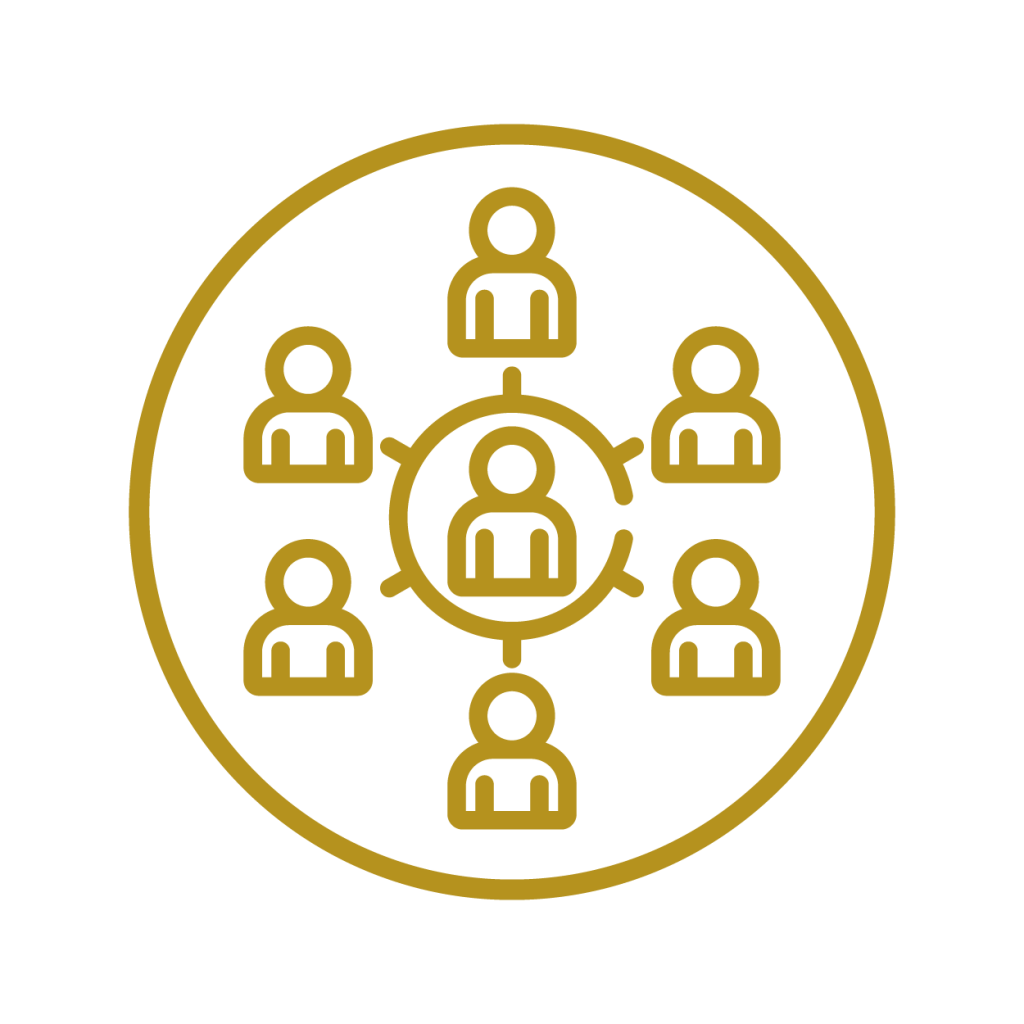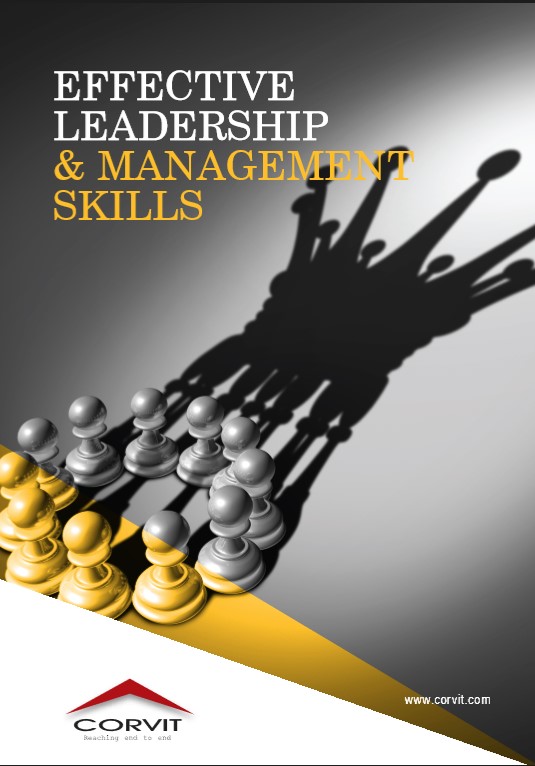EFFECTIVE LEADERSHIP & MANAGEMENT SKILLS
Great managers aren’t born, they’re trained by Corvit.

COURSE DESCRIPTION:
Successful leaders are able to lead, manage and mobilize the talents of the people they work with. The ability to lead and inspire individuals and teams towards optimal performance is a crucial factor in reaching the desired personal and organizational goals. Many people when given the role of “manager “or “supervisor” are never actually trained for the new responsibilities. This training programme offers an excellent opportunity for participants to explore leadership skills, management concepts and actionable strategies to enable themselves and their teams to deliver excellence.
COURSE OUTCOMES:
By the end of the programme the participants would be able to:
- Develop strategies to address challenges faced by new managers today
- Motivate and support other in achievement of targets
- Be able to coach team members and handle team members from different generations
- Create an energized and inspired team for better performance
- Monitor and evaluate subordinates’ work
- Learn and practice key coaching techniques
- Organize and delegate professionally
- Resolve workplace conflicts and problems related with people problems
- Understand the basis of human relations, thus adopting the most applicable strategies when dealing with people
- Select and apply the most suitable leadership styles, motivation tools and communication strategies
AUDIENCE:
Management Trainee Officers
Team Leaders
Supervisors
COURSE OUTLINE:
At a glance
What you'll get
- Facilitator-led discussion
- Interactive group sessions
- Self-reflection activities
- Skills practice and group discussion
Duration
3 days
Maximum group size
Upto 20 people per group
- Developing leadership and transitioning into management
- Traits of successful leader
- Leadership styles
- Management and leadership: A dubious dichotomy?
- Developing managers and leaders: is it worth the effort?
- Feedback and its types
- Cost of failing to provide feedback
- Coaching and counseling to boost performance
- Coaching styles
- Coaching process
- Motivating team members
- Recognition and appraising performance
- Team building
- Working with multiple generations
- Mentoring
- Structuring mentor relationship
- Analytical thinking and effective decision making techniques
- Planning the day
- Explore time management issues
- Plan and prioritize work
- Making smarter objectives and setting clear goals
- Minimize wasted time
- Distractions in the workplace
- Getting your priorities right
- Self-motivation
- Unexpected time stealers
- Tools and techniques
- How to say ‘no’
- Introduction to delegation
- Reasons people hesitate delegating
- When to delegate?
- Practical stages for effective delegation
- Monitoring progress and giving feedback
- Elements of communication
- Communication styles and its matrix
- Effective written communication
- Art of listening
- Speaking with confidence
- Responding
- Professional networking
- Communication in virtual world
- Leading and communicating as a manager
- Why we meet
- Categories of meetings
- Challenges of meetings
- Role of members in the meeting
- Planning a productive meeting
- Agenda is critical
- Selecting participants
- Venue selection and seating arrangements
- Opening the meeting
- Establishing ground rules
- Keeping the participants engaged
- Evaluating and closing the meeting
- Art of making minutes of meeting and action notes
- Who is a negotiator?
- Nature of negotiation
- Preparation for negotiation
- Styles of negotiation
- Strategies in negotiation
- Dos and don’ts of negotiation
- What is performance management?
- Purpose of performance management
- Performance planning
- Performance review
- Performance appraisal methods
- Appraisal systems
- Benefits of performance management
- Managing unsatisfactory performance
- Conflicts happen
- Categories of conflicts
- Where do the conflicts come from?
- Conflict handling process
- Effects of conflicts in an organization
- Managing the energy of conflicts
- Methods to resolve conflicts
- Conflict prevention

